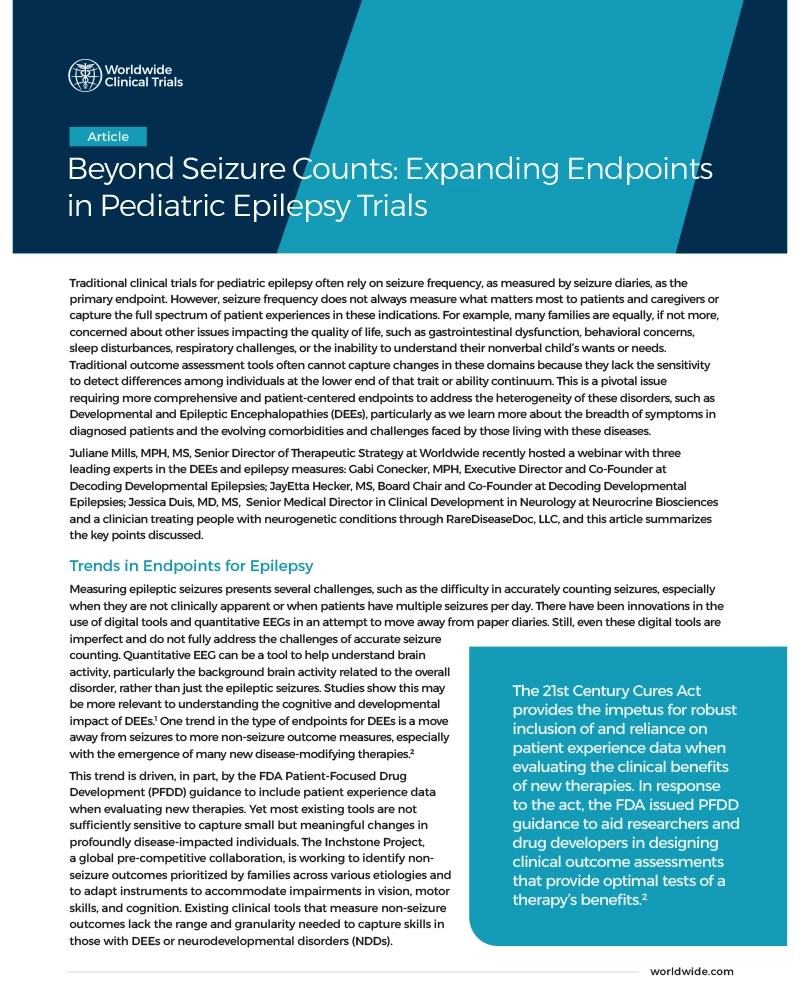While traditional pediatric epilepsy trials often focus on seizure frequency, this approach does not address broader implications for patient’s quality of life. This article explores the importance of considering endpoints beyond seizures, such as gastrointestinal issues, behavioral concerns, and communication challenges. It further highlights innovative methods and tools being developed to better capture these endpoints, including the Inchstone Project’s efforts to create more patient-centered assessments.
Read the full article to learn more about these advancements and how they are improving patient outcomes for patients with rare epileptic conditions.
